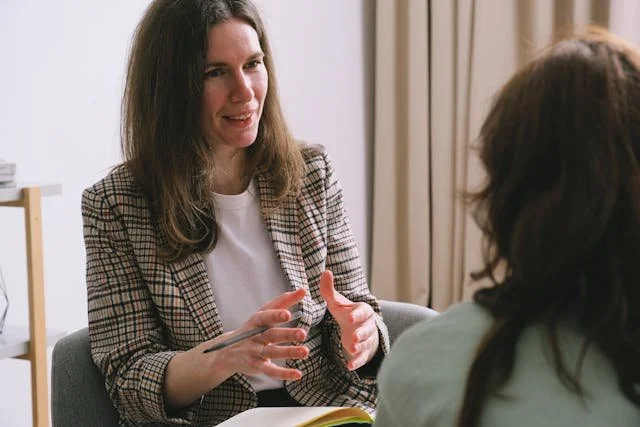Post-Roe America: Processing Anxiety, Grief, and Fear in Therapy
The overturning of Roe v. Wade has sent shockwaves through communities, leaving many individuals grappling with profound emotional responses. Whether you're directly affected by changes to reproductive healthcare access or feeling the weight of shifting societal values, the psychological impact is real and deserves attention. As therapists, we've witnessed how this seismic shift has triggered deep post-Roe anxiety, grief, and fear, emotions that often intertwine with personal histories and broader concerns about bodily autonomy.
Understanding Your Emotional Response to Post-Roe Anxiety and Grief
Your reaction to post-Roe America is deeply personal. You might be experiencing anxiety about future healthcare needs and grief over the loss of reproductive rights. You may even have some fear about what comes next. Some people feel anger, helplessness, or profound sadness, while others notice physical symptoms like tension, difficulty sleeping, or changes in appetite.
These responses are valid. Clinical evidence indicates that denied abortions are linked to higher levels of anxiety and lower life satisfaction. It’s also linked to lower self-esteem compared to those who obtain desired care.
A Trigger to Personal Wounds
In therapy, we often explore how external events activate personal wounds. Restrictions on reproductive rights might remind you of times when your choices were dismissed or controlled. You may be processing past experiences with pregnancy or reproductive healthcare that now feel even more emotionally charged due to the emotional impact of abortion laws.
Counseling creates opportunities for healing by recognizing how systemic changes create real trauma. Carrying an unwanted pregnancy to term is clinically linked to increased risk for maternal mental illness, exacerbating the already existing mental health crisis. We focus on gently processing these difficult feelings.
Responding to Systemic Change
Your body holds the truth of your experience. When we face threats to our autonomy, our nervous systems activate stress responses. You might notice your body feels constantly on alert, your breath becomes shallow, or you carry tension in your shoulders and jaw. This chronic activation is a key feature of prolonged anxiety.
With practical skills and proven tools, you can reduce the level of your anxiety:
Understand Your Body's Response: Recognizing physical symptoms like tension, shallow breathing, or feeling "on edge" as signs of stress.
Mindfulness and Grounding: Using present-moment techniques to safely anchor yourself when you feel overwhelmed.
Breathwork and Regulation: Practicing intentional exercises to calm your nervous system and shift your stress response.
Building Emotional Capacity: Gradually expanding your ability to manage intense, difficult feelings without shutting down.
Finding Your Voice and Boundaries
Therapy provides space to explore how you want to respond to these changes. There is no single right way to navigate this. Some feel called to activism, while others need to protect their emotional resources by setting boundaries.
We support clients in developing healthy boundaries that honor both their values and their well-being. This might mean learning to communicate about your real feelings while managing relationships with people who hold different views. Establishing these boundaries is a powerful step in reclaiming control amid the uncertainty you may be feeling.
Being Intentional
In therapy, processing your heavy emotions helps you develop essential tools for handling them. You learn to better tolerate distress and effectively regulate intense feelings. Ultimately, this empowers you to make choices aligned with your personal values. Even when circumstances feel beyond your control.
If you are struggling with the emotional weight of post-Roe anxiety, specialized therapy for women can offer a supportive space to process your experience. Call me and we can discuss how you can achieve healing and empowerment. Together, we will work to build resilience while honoring the emotions and challenges you are facing.
